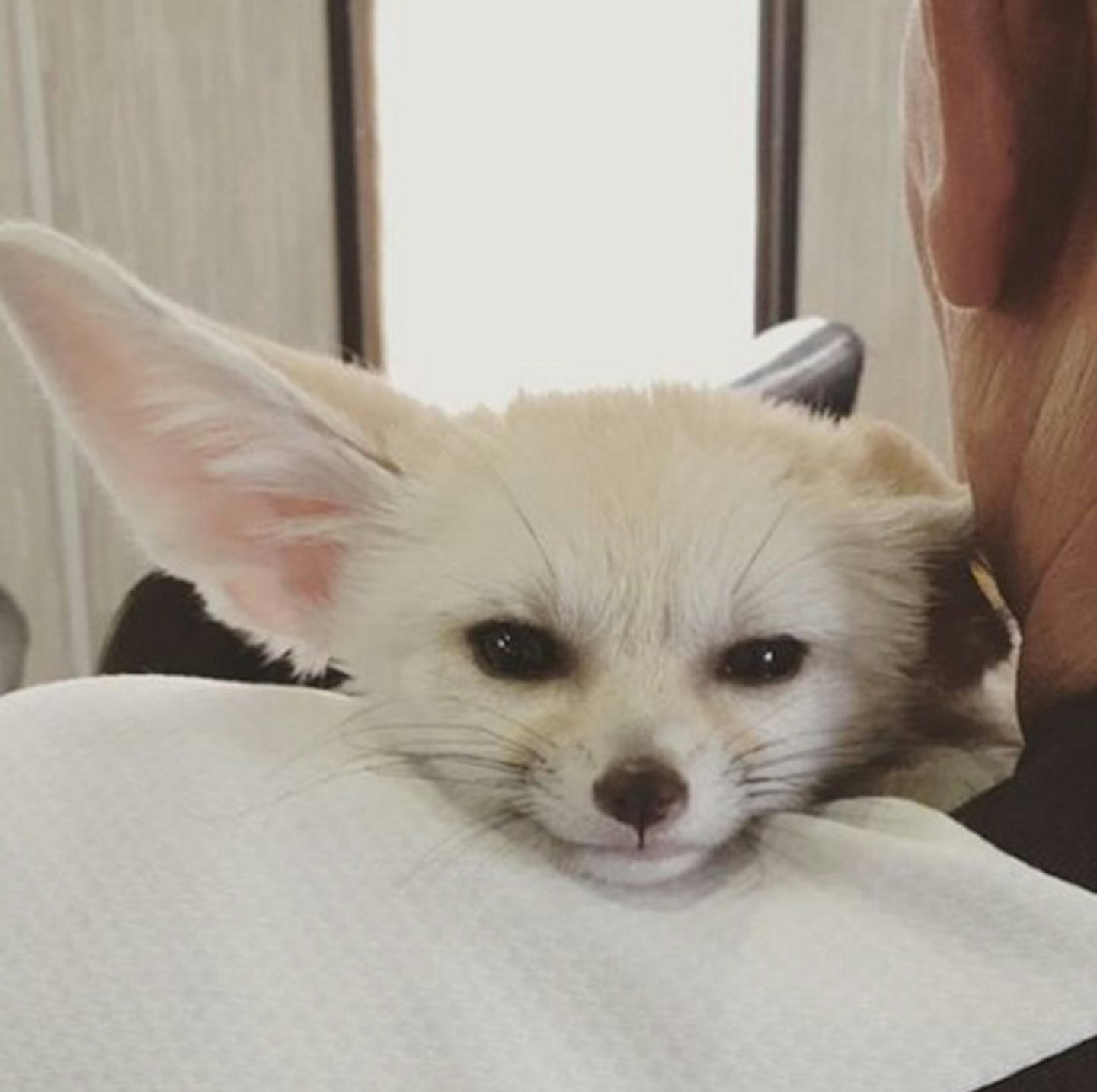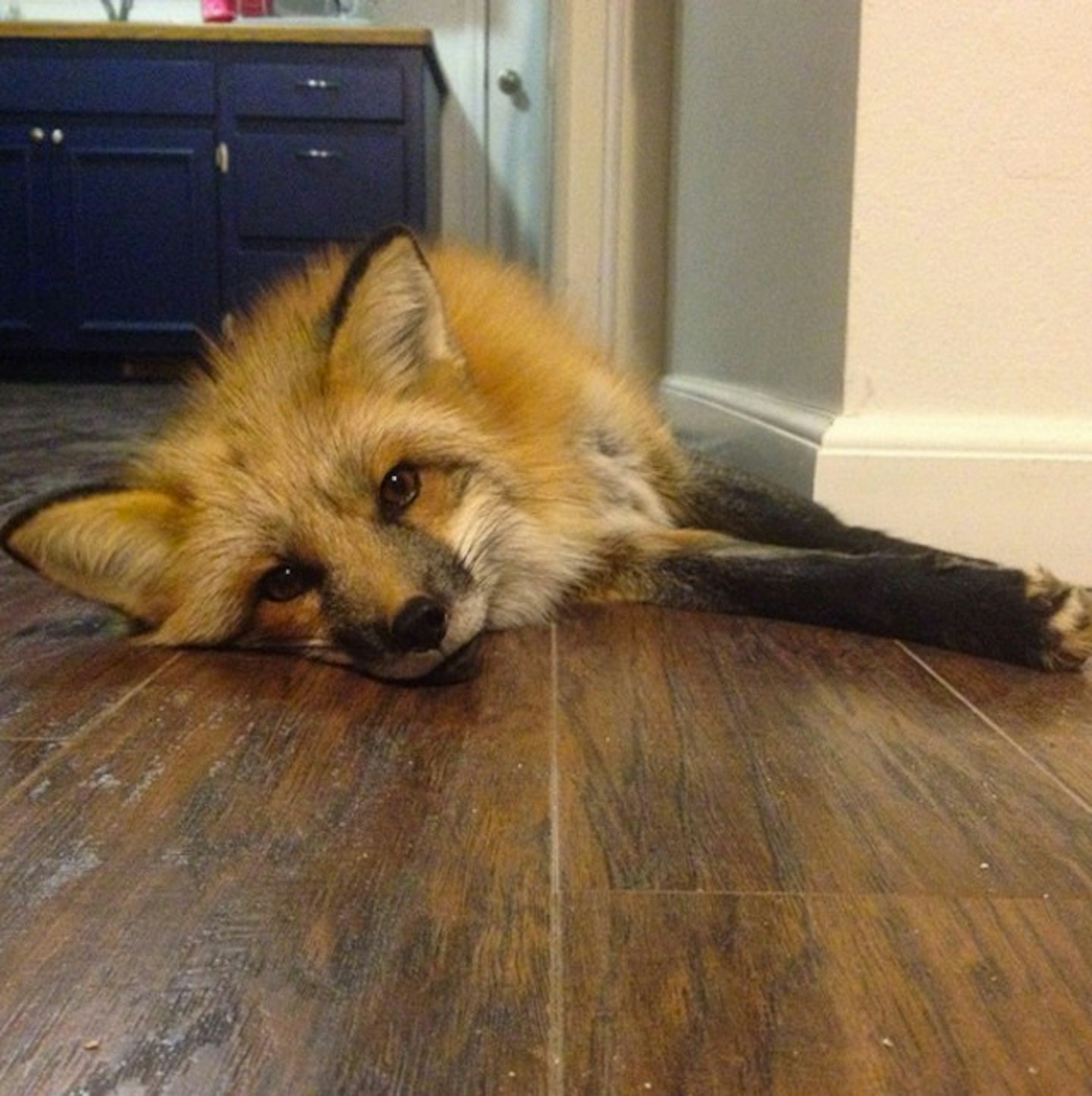Let’s all agree on one thing; foxes are very cute. But just because something is cute, doesn’t mean you need to own it.
Over the past five years, searches for ‘where to get a fox’ have gone up notably on Google. This is in line with a growing number of Instagram-famous foxes like Juniper Fox (one million followers), Penny the Fox (30k) and Yui and Enn (also 30k).
The comments on these, admittedly very adorable, pictures of foxes vary from ‘omg so adorable’ to ‘omg can we get one?’. But, trust us on this, whilst you are welcome to admire these foxes from afar, you definitely shouldn't get one.
Juniper Fox’s ‘mom’ herself is the first person to say that foxes as pets aren’t something to seek out. According to her, Juniper comes from a line of 'tame' foxes that were bred her for fur, Juniper was domesticated and, according to Jessika, is 'not fit to live in the wild.’
"I don't want to promote them as pets,’ She told Viral Nova. ‘I don't want to see foxes end up in rescues or worse.’
‘Foxes smell.’ She said to Bored Panda. ‘Bad. Their urine and faeces smell like skunk mixed with ammonia. There is no way to ‘de-scent’ a fox. You cannot keep a fox indoors 24/7… Foxes are destructive, they will destroy things in your house. Foxes must be fed some raw meats and bone content in their diet. They also need taurine, or they can go blind, suffer from seizures, and even die…’
Dr. Ros Clubb, the senior scientific officer for wildlife at the RSPCA agrees. ‘What we’re trying to say to people is that if you think really hard about it, you probably don’t want one.’ She says exotic pets as animals is growing problem and, thanks to the internet, social media and celebrity exotic pet owners, she's seeing people seek out foxes, raccoons, raccoon dogs, civets and various primates as domestic pets.
‘We are worried that people are taking on the responsibility before they realise exactly what they have to do,’ She says. ‘By then it’s a bit too late and we get calls about abandoned animals because they actually aren’t the cute fluffy things the owners thought they would be. We’re trying to educate people and get them to think before they take the plunge.’

So, in case you were considering it, here’s a few questions you need answers to first.
Where would I even get a fox?
These days, the animal trade is underground. Once upon a time, says Dr. Ros, if you wanted a pet, you’d have to go to a pet shop and you were limited to what they had in store. You also had direct contact with the seller of a licenced premise who was required by law to check you out and tell you if you needed a licence to keep a certain animal. Now, things have moved online. ‘It’s difficult to monitor. ‘ She says. ‘Often there are closed Facebook groups and we suspect there’s a lot of sales going on on social media that we can’t get access to. You can literally browse the internet, say “that’s cute, I want it” and get it.’
Are foxes dogs?
Absolutely not. Dr. Ros is keen to stress to this point. ‘These animals are wild. They’re not domesticated. Dogs and cats have been around people for centuries and adapted to living with them and being handled by them.’ The main breeds the RSPCA are seeing people attempt to domesticate are a ‘colour morph’ of the red fox known as the ‘Silver Fox’, the Arctic Fox and the (really undeniably cute) Fennec Fox.
Can foxes be domesticated?
Not really. Often the foxes people keep as pets are taken away from their mothers when they’re very young to help the teething process. This can lead to behavioural problems down the line, says Dr Ros. ‘They’re pretty destructive and they’re naturally curious, they chew and they dig.’ She says. They also scent mark EVERYWHERE. ‘If you’ve ever smelled a fox you know. It’s a really pungent and persistent smell and the urine marks stain. They’ve also got scent glands between their pads so you'd end up with an extremely smelly house.’
Foxes obviously poo, but can they be litter trained?
Again, not really. ‘They’re notoriously difficult.’ Says Dr. Ros. ‘It’s probably not going to work – you’ve got to be prepared to put pee mats down on the floor and spend your time cleaning up. Or you’ve got to be happy to just have a messy flat.’
Are foxes dangerous?
Rearing them domestically can mess with their temperment Dr. Ros says. ‘It depends on the fox but they can be quite aggressive when they get older. They might start out cute and cuddly but they may become aggressive - probably not toward the owner but towards other people. They might become quite fearful too – that’s a general trait of red foxes.’
Can foxes climb?
Foxes are super active. As mentioned before they’re curious and they like to dig, explore and chew. If they are going to be kept in captivity says Ros, ‘you need big outdoor areas with lots of digging. Being wild animals they’re not going to be able to be kept in someone’s living room.’ Especially if your living room as is poky as mine.
What do foxes eat?
They’re omnivores, which means they’re going to need lots of meat in the form of small rodents – rabbits, mice, chicks and the like. So, for a fox owner, there’s the responsibility of getting hold of those every day. But, fox’s nutritional needs don’t stop there. They also need stimulation with their food, as they’re natural foragers. In zoos, keepers hide their food and they build things for them to destroy so they can find the food inside. This is not, Ros is keen to stress, a similar situation to your cat where you leave some wet food out in the morning and head off to work.

What if I don’t look after a fox properly?
Behavioural issues can become common she warns. And that, is on you. ‘The person caring for them has a responsibility under the Animal Welfare Act to meet their needs and that includes providing them with the opportunity to express normal behaviour like foraging and spreading scents and smells.’
And what happens if a fox is abandoned?
That is extremely tricky. ‘We’ve got wildlife centres to take in normal wildlife,’ Says Ros adding that they’ve also got centres for animals like dogs and cats. ‘Trying to find somewhere for a fox that’s been reared by people can be very difficult.’
And if they do find somewhere temporarily?
‘Then we have to try and find somewhere to rehome that animal. We don’t want them to be rehomed as pets but it’s hard to undo people rearing so we really have to find a sanctuary that can provide a natural outlet for that behaviour and there’s not a whole lot of places that can fit that bill’ Says Ros. ‘It’s a time consuming, costly venture for just that one animal. It’s very frustrating.’
So, in short guys, leave the foxes on Instagram.
Like this? Then you might also be interested in:
This Guy Weightlifting With His Cat Is Everything We Need Right Now
‘Confused Cats Against Feminism’ Is The Best Thing You’ll See All Day** **
Follow Jess on Twitter @Jess_Commons
This article originally appeared on The Debrief.
